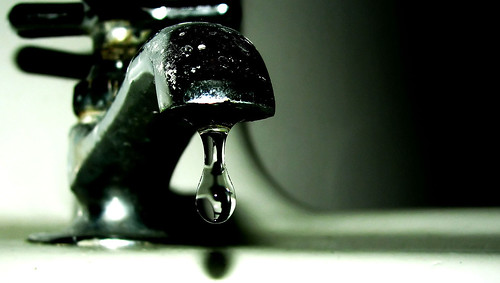
Photo Credit Meredith Farmer
They say it rains in Ireland one day in every two and certainly this year it lived up to that reputation what with August 2008 being the wettest August since records began.
The Irish Met office said in its monthly report for August 2008:
August was a month of exceptionally heavy rain over most of the country, bringing flooding in many areas. Following the pattern of much of this summer’s weather, low pressure close to or over Ireland brought a succession of Atlantic frontal systems across the country, giving some significant falls. It was the wettest August on record at a number of stations, including Dublin (Phoenix Park), where rainfall records began in 1837.
Given that you’d imagine that Ireland would be the last place suffering from a shortage of water. You’d be wrong!
A recent report from Forfás, the national policy advisory body for enterprise and science identifies four major urban centres – Dublin, Galway, Athlone and Letterkenny which could face water shortages over the next five years. Why? Leaky pipes seems to account for a lot of it, it seems. From the report:
Ireland has relatively high levels of unaccounted for water. Approximately 43 percent of the total volume of treated drinking water produced in the Gateways and Hub towns is lost before it reaches the final consumer.
That goes some way to explaining how Dublin, a city of just over 1m people, consumes 500m liters of water per day.
That level of waste is absolutely outrageous and instead of trying to fix the problem, Dublin City Council are talking of piping water from Lough Rae, a special area of conservation on the Shannon in the West of Ireland to Dublin!
The correct way to tackle this is, similar to our current energy problems, make the system more efficient (fix the leaks) and manage the demand (start charging households for water). Ireland is one of the few EU countries which doesn’t charge its citizens for water, and it shows!
With just 1% spare capacity of water, in some ways maybe it is a good thing this August was so wet in Ireland, or the water shortages might have been a reality sooner than later.

I would say that this is typical of the response of authorities to shortages. Instead of focussing on conservation and resource-usage efficiency, they think in terms of expanding the resource supply. It’s the same sort of thinking that applies when someone’s response to a cash shortage is to take a loan, rather than to economize with the cash that they have.
We’re going to have to fundamentally change this way of thinking, both in the short and in the long term, or we will find ourselves in deep trouble — and the day when that happens is closer than people think. In some ways, it’s already here.
I would like to note that the weather is not important at all when you are visiting the city like Dublin.